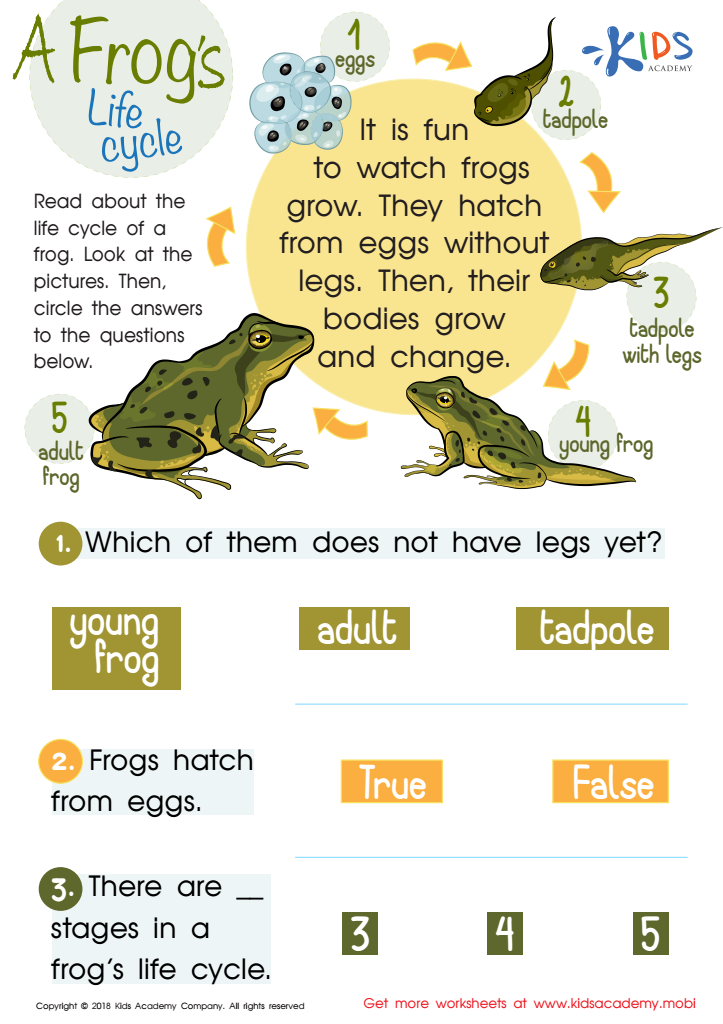Learning frog development Worksheets for Kids
1 filtered results
-
From - To


A Frog’s Life Cycle Worksheet
Question/Answer
What does the Learning frog development skill mean when it comes to Grade 2 Reading Non-Fiction learning?
The Learning Frog Development Skill in Grade 2 Reading Non-Fiction refers to the ability of second-grade students to engage with and comprehend non-fictional texts. This skill encompasses recognizing factual information, understanding the main idea and key details, and differentiating between fiction and non-fiction. It aims to develop critical reading skills and enhance knowledge acquisition from informative texts.
How to test a Grade 2 student’s Learning frog development skills?
To test a Grade 2 student's learning frog development skills, engage them in activities that require identifying different frog species, understanding their life cycles (from egg to tadpole to adult frog), and recognizing their habitats. Use visual aids, interactive quizzes, and hands-on experiments, such as growing tadpoles, to assess their comprehension and retention of the subject matter.
What are some effective activities to train students’ Learning frog development skill when teaching them about Reading Non-Fiction?
Effective activities for training students in reading non-fiction include: 1) Analyzing text structure (identifying headings, subheadings, and organizational patterns), 2) Teaching note-taking strategies (e.g., Cornell notes, mapping), 3) Encouraging questioning (What? Why? How?), 4) Summarizing paragraphs or sections, and 5) Comparing and contrasting information from multiple sources to enhance critical thinking and comprehension skills.
 Assign to the classroom
Assign to the classroom












